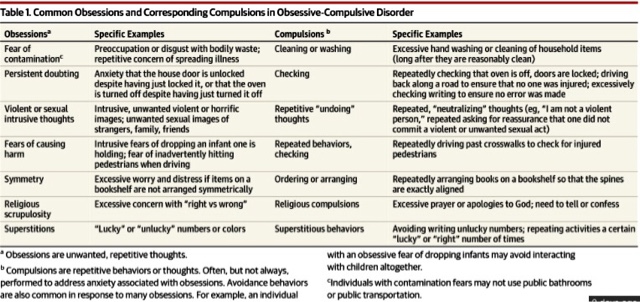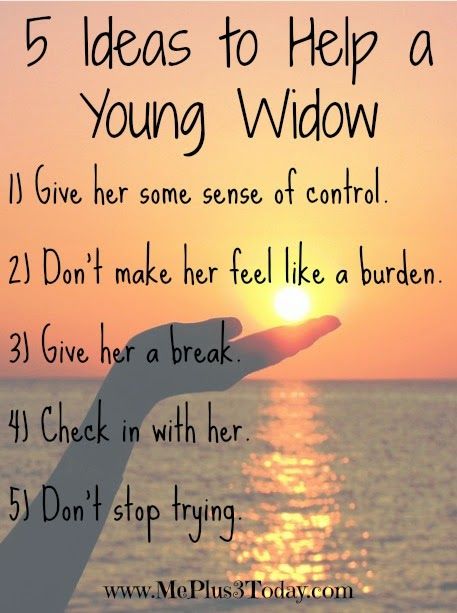Midlife crisis wake up
The 6 Female Midlife Crisis Stages
For many years I have worked with men whose wives have suddenly collapsed into a midlife crisis or eventually melted down into a woman these husbands did not know. There are stages that a woman goes through once her midlife crisis begins and if you know what to look for, you can recognize them.
The reason I tell you this is because the men I work with want to know when it’s over. They want to know that because they can’t stand living with this other woman who resents them or even hates them. These husbands want to know when it will be over so they can get back to their normal life with their normal wife.
And who could blame them? They had no idea this was going to happen but if they knew what I know, they could’ve predicted this long before their wedding.
Childhood Chaos = Midlife Crisis
Women who melt down into a midlife crisis all have one thing in common: they come from painful childhoods and they are what I call a "Chaos Kid".
A painful childhood is one where the girl endures abuse, neglect or abandonment. If one, two or even three of these things have happened to her in her first 10 years, she will endure a midlife crisis in her adult intimate relationship and her marriage, sometime between two and 26 years into the marriage. Typically, a woman’s midlife crisis launches between ages 35 and 45 but in some cases of really severe childhoods, it can even begin in their early 30s.
Through my own research where I interviewed hundreds of people about their childhoods, this has proven to be true over and over again. Girls, who grow up in happy homes where mom and dad enjoy each other and mom and dad make her feel important and valuable, never endure a midlife crisis.
The reason your wife is going through a midlife crisis is because her childhood has some combination of abuse, neglect or abandonment. I won’t go into how it works here, but even if I would’ve warned you about this 60 days before your wedding, you would have thrown me out of your house.
At that time, you were not ready to hear it because you had to fulfill your destiny and this is the girl who could do that. That’s because something in YOUR childhood, attracted you to THIS particular girl because of what happened in hers.
There Are 5 Rules of a Chaos Kid Wife
- She says what she doesn’t mean and what she means, she doesn’t say.
- She believes her needs are more important than your needs.
- She sells herself as somebody she’s not.
- Any good thing you do or say, she sees as a threat.
- She wants what she can’t have and what she has, she doesn’t want.
Before I explain the 6 stages of a female midlife crisis, I want you to realize that your wife WILL go through them. If you are not what I call an Environment Changer, you will not be able to shorten this process. That means you must get through it and that will take 2 to 5 years. Also remember that these stages are not completely distinct. They can blend together and sometimes completely overlap. You will see stage two happening in one week and stage 3 happening in the next.
You will see stage two happening in one week and stage 3 happening in the next.
Throughout these stages, you might see some of the following symptoms of your wife's midlife crisis.
- She is ending her marriage to establish her independence.
- She shows no incentive to work on her marriage.
- She is convinced that her new life will be fantastic compared to the one with you.
- She is freeing herself.
- She is running away.
- She wants her time and space.
- She is tired of being the care taker.
- She does not care what others think
- She stays out late without explanation
- She plans trips without you.
- She will risk marriage, children's well being or career to feel happy with some other man.
- She cares only about herself.
- She blames everyone for her actions.
- She has no logic and no consequences.
- It seems like an alien has taken over your wife's body.

- She is hiding everything from you.
- Her emotions control her every move.
- She acts like a 17 year old rebelling against her parents.
- Her every feeling is a fact that cannot be argued.
- She is never wrong, while you are always wrong.
- She is determined to get everything she wants.
- She has lost every ounce of compassion for immediate family.
STAGE 1: The Emotional Collapse
The beginning of her crisis begins with a crisis. Don’t be too concerned about what kind of crisis it is but I will give you an idea of what this might be based on my hundreds of interviews.
- Her mother could move in with you while you are losing your job
- Her mother, father, or important family member passes away
- She or someone she loves experiences a major accident
- She experiences a big change in career
- The two of you experience a long distance move
- One or both children move out of your home
- She is diagnosed with an illness
- And the list goes on.

Any of these are typical situations that could launch your wife into a midlife crisis. The beginning of the midlife crisis is usually one or two dramatic issues that cause her to collapse emotionally.
STAGE 2: Enlarging the Gap
In Stage 2, the monster within that now controls her body seeks to blame you for every bad thing that’s happening. This is designed to keep you flustered and standing on one foot. The purpose here is to increase the number of reasons why she should divorce you. That means that out of her mouth will come many judgments, unfair comparisons, exaggerations of past behaviors and anything else that will help generate “against energy” in you.
Since you know that stage 2 is meant to push you away, you must learn to stay very calm and accept that some entity has taken over her body in order to destroy your family. Staying very calm and accepting everything is the job you must do, but you might discover that there is also a monster in you as well.
The monster within you is determined to connect with that monster in her. If you don’t kill off this dark thing within you, it will be very tough to get your wife back to her true self.
STAGE 3: I Want My Freedom
This is the stage where she is determined to get free of you and this stage can take on many variations depending on how she was raised. If her childhood has a great deal of chaos, her mother divorced before she was 10, and her biological father abandoned her, then she will be getting out of town starting with moving out of your house.
She will be insistent that she cannot go anywhere near you. Again, depending on the chaos in her childhood, a high chaos girl will disappear on you in this stage. She won’t return your calls or texts.
If you are angry at this behavior, you will be generating against energy. That will not serve you well at all. If you still want the girl at this stage, it’s because you see a difference between the girl you love and the entity that is now controlling her body much like a possession in a horror movie.
STAGE 4: You Owe Me
This is the stage where your wife takes on various vindictive behaviors. Most of these will be to get you to pay financially for the things she believes you owe her. Depending on the girl, she could make many financial demands through her attorney such as requiring that you pay both lawyers.
It also could be that you emotionally owe her for past hurts and she wants revenge. That could take many forms depending on how she was raised. No matter what twists this stage takes, watch for a focus on getting back at you financially.
STAGE 5: I’m Happier Now
In Stage 5, she will be seeking out ways to let you know that she is much happier now because she has a new boyfriend, a new apartment, a new career, a new engagement, a new something. This is the “show off” stage where she finds ways to communicate through friends, through family members or even directly that you suppressed her entire life and now that you are out of it, she is much happier than ever before because you are gone.
STAGE 6: Somebody I Used To Know
Like the song, “Somebody I Used to Know”, she has done what she promised and moved on with her life. She has turned you into a distant memory of someone she used to know. She does not bring you up to anyone and if you have children together, she will never admit you meant anything to her.
I can’t say this next point enough because men don’t hear me very well when I make the point.
The point is this: the entity that is driving this supremely self-centered behavior has taken all of her childhood pain and blamed it all on you.
Your wife actually believes it's all your fault because she has no clue what else could have led to her bottomless pit of unhappiness and despair.
That’s why a midlife crisis in a woman is completely unfair to her husband (unless he’s abusive, etc. and an extreme chaos kid himself). I’m assuming you are not that man. Otherwise you wouldn’t be reading this.
You are probably a real nice guy who treated her exactly the way your father treated your mother in your first ten years. Your mother could handle it from your dad, but your wife could not accept you being like him.
How To Shorten Your Wife's Midlife Crisis
If you are looking for a way to shorten your wife's midlife crisis, I would suggest that you watch the video presentation that covers many of the concepts I teach, bringing it all together into a message on why this is happening and what you can do to “save the girl”.
In this hostile environment, you must become you at your best to avoid pushing her further away. Gifts, cards, kind words, notes and affection will only push her further away from you and add fuel to the fire.
Now that we’ve confirmed your wife is a Chaos Kid, one of the most difficult things you’ll be faced with is understanding the fact that you can’t treat her like a normal woman. You’ll try to rationalize, make sense of the situation, buy cards for birthdays and holidays, apologize often, tell her you love her like you would in a normal marriage.
Why Listen To Larry Bilotta?
Both I and my wife Marsha are Chaos Kids.I spent 27 years in a marriage made in Hell, but in the 28th year, fell in love with my wife and today we’re still married over 40 years.
I paid a price to get the answers I’m sharing with you today and I don’t want you to have to go through what I did – lost, confused, angry and worried about your uncertain future. For over 15 years, I’ve since made it my life’s work to demystify the source of human behavior and spread the word about the Chaos Kid Phenomenon and the idea that troubled homes create troubled marriages.
I’ve helped thousands of men learn to control their emotions, win their wife’s heart back and attract her back like no other man can. If you’re ready to get your hands on a plan that will help you weather the storm and shorten your wife’s midlife crisis, you can access this course from the comfort of your home in under 5 minutes.
Marriage Authority Larry Bilotta Happily Married Over 40 Years
AS SEEN ON
Here’s What Mark Gungor, One Of The Most Sought-After Speakers On Marriage and Family In The Country Has To Say About Larry…
Click the ‘play’ button below to hear what Mark recently had to say about Larry Bilotta on his radio show…
Mark is Sr. Pastor of Celebration Church, a multi-site church with five campuses across Wisconsin, and the CEO of Laugh Your Way America.
Mark speaks for churches, civic events, and business meetings and is a much requested speaker for the US Army.
Signs of a Midlife Crisis is Coming to an End
Are you having something of a midlife crisis or is your partner currently going through one? Are you telling yourself ‘I wish it would just end!’.
You don’t have to be married or co-habiting to have a midlife crisis but the impact it has not just on your life but on those around you can be difficult and traumatic – the mood swings, buying trendy clothes, the new car or extra-marital affair – but how do we know when it’s coming to an end. Or does it ever end?
Or does it ever end?
In a previous post we discsussed how long a midlife crisis can last and the signs that indicate your spouse/partner (or indeed yourself) may be going through a such a tumultuous phase. This time we’re going to take a look at the signs which may indicate a crisis is reaching its end point and showing that there is always light at the end of the tunnel.
What Are The Symptoms of a Midlife Crisis?
We suggest you refer back to the post mentioned above for a fuller list of signs and symptoms that you or a loved one may be experiencing, but some key pointers are:
- A sudden change of appearance – losing weight/colouring away grey hair/new clothes etc
- Staying out late
- Lack of affection/no interest in sex with spouse/partner
- Not communicating/sharing and/or picking arguments for no reason
- Prolonged absences from home (the suddenly arranged ‘work trip’)
- Purchasing expensive gadgets, a flashy sport car (even if finances don’t allow for these expenses!)
- Depression/sleep problems
Determining if any of the things listed above are actually signs of a midlife crisis or a reflection of an inner dissatisfaction with the state of the individuals’ life in general, is somewhat subjective.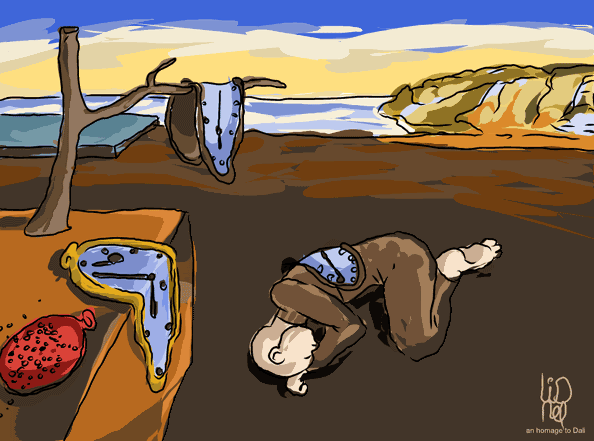 What for one person may be a genuine sign of a crisis could, for someone else, actually be just the realisation that they are truly unhappy with something in their life and changing that one thing will set them back on an even keel.
What for one person may be a genuine sign of a crisis could, for someone else, actually be just the realisation that they are truly unhappy with something in their life and changing that one thing will set them back on an even keel.
For the spouse or partner of someone displaying signs of a midlife crisis there will inevitably be the feeling that perhaps it’s something they have done (or not done) which is causing or contributing to the problem. Many (women in particular) will bend over backwards to accommodate the behaviour being displayed by their partner; they will change perceived flaws in themselves hoping that by doing so they will ‘fix’ the problems in the relationship.
IS LIFE GETTING ON TOP OF YOU?However, if the problems are actually caused by something entirely within their spouses head it is highly unlikely that changing appearance/becoming more sociable (or whatever the spouse says is the issue) will suddenly get the marriage/partnership back on track.
At the end of the day only the person experiencing a midlife crisis can work through whatever it is causing them to feel the way they do; no amount of help/love/understanding from their spouse or partner is going to make the slightest bit of difference if they don’t want it to.
Sometimes it won’t matter what the person who has loved them for years does/says and no amount of patiently waiting for the midlife crisis to end will be enough if the other person walks away without a backwards glance.
In this scenario, the spouse left behind will need to understand, on a deep level, that it is categorically NOT their fault that the marriage has ended. Blaming themselves for something totally out of their control, i.e. the other person’s feelings and behaviour, is not helpful in trying to rebuild a life shattered by an unwanted divorce or separation.
What Are The Solutions to Ending a Midlife Crisis?
Often, a midlife crisis will simply run its course and intervention either by a spouse or a professional, e. g. marriage guidance counsellor, may do little to change the outcome – but this is not until a serious amount of stress and angst has been caused, won. lost and fought over.
g. marriage guidance counsellor, may do little to change the outcome – but this is not until a serious amount of stress and angst has been caused, won. lost and fought over.
However, if the individual is exhibiting dangerous or risky behaviours or showing signs of clinical depression (suicidal thoughts/low self-esteem/major sleep problems) then it may be necessary to call in expert help. Persuading the sufferer to seek such help may not be easy but at the very least a referral to their GP should be suggested.
The coaches here at Success Stream can help guide you through the best approaches.
If your spouse or partner has not cut off communication with you (see the bullet points above) and you are still able to talk openly tean we would suggest that is exactly what you do! Share how their behaviour affects you and the wider family (they may not be aware of the impact they are having), emphasise that they are loved, are important and point out all the positives in their life.
The saying ‘can’t see the woods from the trees’ is especially relevant to someone going through a midlife crisis when it is highly likely they are concentrating only on the perceived negatives of ageing and not the wonderful possibilities that could be opening up for them.
Where marriage is concerned, sometimes, despite everything a spouse does to be supportive during their partners midlife crisis, it will unfortunately come to an end. It may be that this would have been the eventual outcome in any case – people do naturally grow apart, life goals and expectations do change and the midlife crisis may not have been the root cause of the marriage ending, merely a symptom.
Life after divorce DOES go on and you should try to see it as a new beginning NOT an end.
We’ve talked extensively here about spouses/partners but it is important to recognise that one can still experience a midlife crisis as a single person!
Of course, the main difference is that actions/changes will affect only the person in crisis (unless there are children from previous relationships) and so the impact will be less widespread.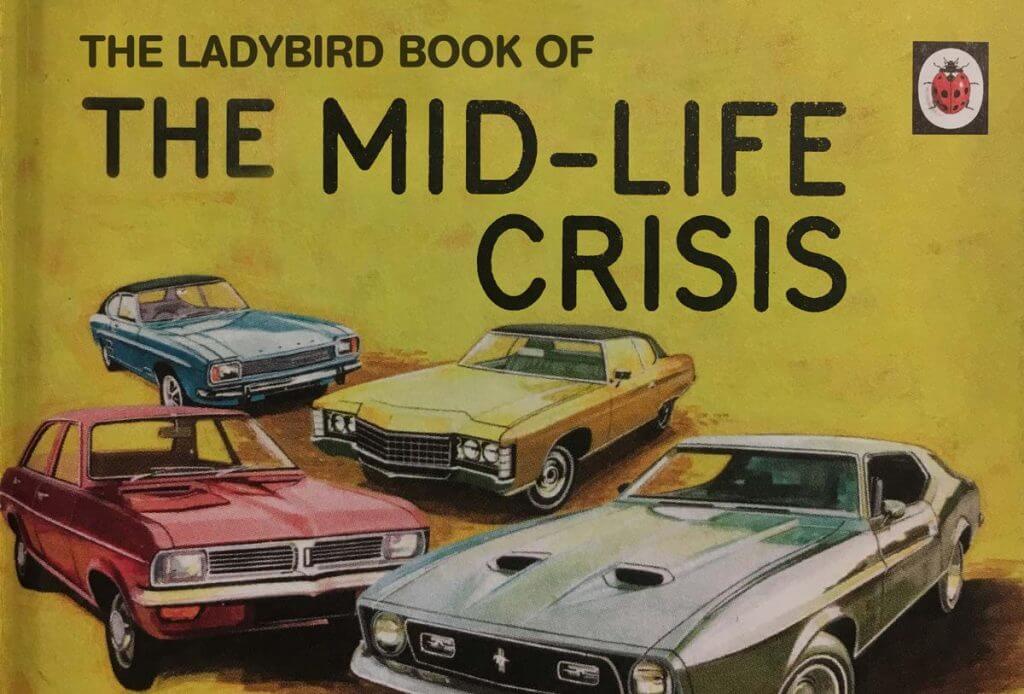
A single person experiencing a midlife crisis may not however have the same kind of support network to lean on. It may therefore be beneficial for them to seek out groups, perhaps associated with any hobbies/interests, in order to negate any sense of isolation.
Does everyone have a midlife crisis? Watch the video.Work Through the Crisis
A midlife crisis will likely come to an end (otherwise it might become clinical depression or a mental illness) but are there any signs you can look out for which could signal that better times are just around the corner?
If your spouse pushed you away, stopped communicating and went their own way for a period of time, maybe even had an affair or affairs, a sudden return to pre-midlife crisis behaviours could signify that they are beginning to realise the grass was not in fact greener outside of your relationship.
Spending more time in the family home, doing things they used to, and trying to rebuild the bridges they had burned, may indicate that they have worked through, or nearly worked through, whatever internal issues they had which caused them to push against their status quo.
Does he/she appear to be becoming ‘more at peace’ with themselves? Does their angst appear to have lessened and do they seem calmer?
A midlife crisis can often hinge on an individual needing to ‘fix’ something within themselves – often they don’t actually know what that something is, they are just aware that some thing is missing/wrong and they may have avoided the issue for years. Finally, a trigger – perhaps the first grey hairs/loss of fitness/realisation of mortality – kick starts a need to try and work out what needs fixing.
Some people buy the sports car/have an affair/change jobs, whilst others take a more spiritual approach to working out what is lacking in their lives. They may never fully work out what the problem(s) was but will hopefully come out the other side a more fulfilled individual, one who finally understands the blessings in their life.
One thing is certain though, the spouse who has passed through a midlife crisis will not be the same person they were before; it is therefore up to the one who patiently, or not, waited for the crisis to end to determine if this ‘new’ person is someone they wish to spend the rest of their lives with. If this is something you are struggling with yourself, please remember that we at Success Stream are here to help.
How Do Non-Marital Midlife Crises End?
Not all midlife crises are about relationships. It may be a realisation your career is going nowhere. Consider then what job satisfaction means to you. Are you bored at work? Do you want more responsibility? Less responsibility? More time with the family? More money (this isn’t always the biggest issue)? Are you looking at retiring in ten years and are suddenly aware there’s simply no way you could afford it? Perhaps you’re just sick to death of your current job and are dying for a new lease of life?
Is it a realisation that for the past 20 years you’ve put no effort into your career and merely bumbled along with a Monday-Friday, 9-5, but you see your friends taking foreign holidays, regularly eating out and generally prospering, and wonder ‘How did they do that? How did they get there?’ and ‘Why can’t I do that’ or more importantly ‘Why didn’t I do that?’.
In today’s world, job satisfaction is important to many of us. Perhaps getting that change in career is all you need; maybe it’s a pay rise; maybe a move to a different company.
Once these weights are off your mind it is so much easier to enjoy one’s life when the shackles, stresses and strains that you identified before are removed.
Improving your career and prospects may be just the solution to ending a midlife crisis.
Does The End of a Midlife Crisis Differ Between Men and Women?
Men and women experience midlife crisis differently (our earlier article on understanding how long a midlife crisis lasts talks about this) and so it stands to reason that the end of such a crisis will be different.
Facing a midlife crisisFor women, whose midlife crisis is often triggered by the menopause, the end may actually signify a new beginning, one free from the pain and inconvenience of menstruation and the risk of unwanted pregnancy.
They experience a renaissance and embrace the new possibilities the ‘third age’ brings once the children have flown the nest. Many post-menopausal women will say with some confidence that they are happier than they were in their youth as they are no longer afraid to be themselves!
Many post-menopausal women will say with some confidence that they are happier than they were in their youth as they are no longer afraid to be themselves!
With finances hopefully in a better state than earlier in life, the older woman will happily try new experiences, perhaps consider learning opportunities and look also at a career change. The pressure to conform to societal standards of youth and beauty is lessened (IF the woman has the self-confidence gained by life experience) and she is free to wear, be, do what is right for her.
Ageing SHOULD be EMPOWERING and provided one pays attention to diet and exercise there is absolutely no reason that old age should become a reason NOT to do things.
A man emerging from a midlife crisis however may still look back with some regret to the past; it is still the case, even in the 21st century that a man’s persona is tied very closely to the work they do, the job they have and the income they earn. Once the job is ‘taken’ away with the advent of retirement, some men may undergo another crisis point where they suddenly feel worthless, useless etc. (particularly if they didn’t address self-worth and self-esteem issues earlier in life…or in the midlife crisis).
(particularly if they didn’t address self-worth and self-esteem issues earlier in life…or in the midlife crisis).
Unlike his spouse who, as above, may feel a renewed sense of self as they pass through the menopause (and/or midlife crisis) an older man may feel a lack of direction and purpose.
Equally the man who reinvented his life during (or as a result of) his midlife crisis, may suddenly realise that all the changes he has made have not addressed whatever the problem was he was trying to fix. He may discover that the woman (or man) he replaced his wife with is not the soulmate he hoped for; the jazzy little sports car he ‘needed’ is suddenly too difficult to get in or out of and the fitness regime he started is becoming increasingly impossible to maintain.
At this point he may feel the need to start the cycle all over again – looking for happiness and fulfilment in all the wrong places. Instead of looking inwards for the answer, he attempts to change his material world again.
Is The Idea of a Midlife Crisis Changing?
A recent report by Goodyear Tyres has actually shown that 54% of those surveyed believe they are entering into so called ‘middle age’ with a completely different approach to previous generations and are actually learning to embrace getting older.
The term ‘second-bounce’ has been coined to replace ‘midlife crisis’ (yay) and it’s all about feeling good about the future, learning from the past and taking stock. More of us are staying healthier for longer and there is no reason why our later years shouldn’t be as fulfilling (or even better) than our younger ones.
It’s all about mindset, perhaps previous generations expected to feel old and ‘past it’, therefore that’s exactly what they got; in this context a midlife crisis makes sense to a point. Contrast that mindset with the ‘anything is possible no matter what age you are’ that is becoming increasingly common – look at the likes of Madonna/Jonny Depp/Brad Pitt/George Clooney/Sharon Stone … the list goes on – all over 50, but successful, healthy and prosperous.
Our role models have changed and therefore so has our personal mindset – you’re never too old to try something new!
How Do You Know If/When It Has Ended? What Are the Signs?
Let’s be honest, solutions to midlife crisis depend entirely on what the problem is: solutions to a relationship are FAR DIFFERENT than solutions to the realisation your career is going nowhere, or the thought that you’re not the spring chicken you once were and have never completed that marathon you said you would.
It might be the realisation that enough is enough, the transition to a new job, or partner, and this might take months, or it could take years. There will, however, be inner and outer displays/actions that show you’ve come out on the other side. They may, or may not, be apparent to you but they will be to others.
If you’re trying to work out if your own life crisis has passed, look inside! Do you have a sense of calm, of acceptance, of feeling you are where you should be and doing what you should be doing?
If the answers are yes then it is more than likely you have successfully negotiated your personal midlife crisis so WELL DONE!
You can ask your spouse or partner the same kind of questions to establish that they’ve now arrived in calmer waters. However, it’s more than likely that you will have already noticed the changes (for the better) in their behaviour and outlook; they’re loving, communicative, want to spend time with you and the family – in short, life feels happy again!
However, it’s more than likely that you will have already noticed the changes (for the better) in their behaviour and outlook; they’re loving, communicative, want to spend time with you and the family – in short, life feels happy again!
Remember, midlife crises are different for everyone.
Some people (apart from a bit of inner soul seeking) appear to sail through this stage of their lives, whilst others will rage and struggle to adapt. Life changes. People change – all the time.
What worked before may not work as you move into later life – don’t get stuck thinking things have to stay the same. Learn to ‘go with the flow’ (meditation is good for this) and live for the now, not what was or will be.
Success Stream coaches are here to help, if it gets too much, reach out – we’ll be here.
Let’s get you over the finish line
Talk to us about getting more out of life.
Let’s do this!
📖 Snake awakening. Middle age crisis.
 Survival Notes. Sharp D. Page 7. Read online
Survival Notes. Sharp D. Page 7. Read online “Alas,” said the mouse, “the world is getting smaller and smaller every day. At first it was so huge that I was frightened and kept running and running, while I was very pleased that far from me to the right and left I see walls, but these long walls narrowed so quickly that I already found myself in the last closet, in the corner which is a trap into which I must climb.
- You only had to change direction - said the cat and ate the mouse.
Franz Kafka. Little lie
Norman showed up in a new suit. He was quite cheerful.
I thought I did something special, he said. “It’s like starting life all over again. All this week I've been feeling awful looking forward to visiting you. I told Nancy about visiting you. It just freaked her out! He smiled wryly. "Why didn't you warn me that you were going there?" she asked. I saw that she was in real pain. I didn't blame her. Probably the first time since we met, I made a decision on my own. We all decided together: what little change to buy, what movie to watch, how I need to dress to speak at the next meeting.
We all decided together: what little change to buy, what movie to watch, how I need to dress to speak at the next meeting.
Norman smiled.
Nancy has always helped me with everything. Did I tell you about our famous dinners? She cooks great. She is the most hospitable hostess. In addition, she is very smart. One of her most attractive qualities for me is her extraordinary thinking. She always had her own opinion on any issue: regarding politics, how to maintain a haircut, how to raise children. You understand what I'm talking about. She told me everything I needed to know. I didn't have to think about anything.
He laughed but stopped immediately.
- Sometimes this annoyed me very much: it happened when I had to do household chores. She always knew better how to do things. I even came up with a joke on this topic: if you want a man who has “hands in place”, marry him. I do not remember being called a man who has "hands in place." But even if it is, it does not mean at all that I can sew and hammer nails.
Norman looked at me shyly, as if he had betrayed some important secret.
- In general, Nancy was very concerned about my visit to you. "What did you say to him?" she asked. I told her most of what we talked about, and added that she should not worry. "Did he want to meet me?" I replied that I did not see the need, at least not now. And what do you think?
I reminded Norman that I don't work with couples.
- Last year we thought about going to a family counselor. We talked about it all the time. Nancy said that she would do anything if it would make me feel better, but since there are no problems with our marriage, she does not see much point in such consultations. This means that we never quarreled with her. We never picked on each other. I agreed with her. And what do you think?
I nodded.
- This week I mowed the lawn grass. I obviously didn't want to do it. Played with children, returned to work again, held several business meetings. I have a really good life.
Norman tilted his head and thought for a moment.
- During all this time we did not make love. I didn't insist on it. Damn it, I know she doesn't take it well. It would be very difficult for her. Sometimes she cries at night. I thought I should wait until she came to me herself.
We spent the rest of the session getting to know each other better. Norman worked as a sales manager for a multinational corporation. This work was familiar to me, and I listened to him attentively. Norman talked about the general things, and I focused on the details. He felt confident and spoke with skill. Several times a month he went on business trips. He stayed in hotels and there he had chance encounters with women. Sometimes they spent the night together. According to Norman, this was nothing special.
- You know how it is. I'm very sensitive,” he laughed, “I just can't say no.
Norman grew up in northern Manitoba, in the small town of Churchhill, founded by hunters and fur traders.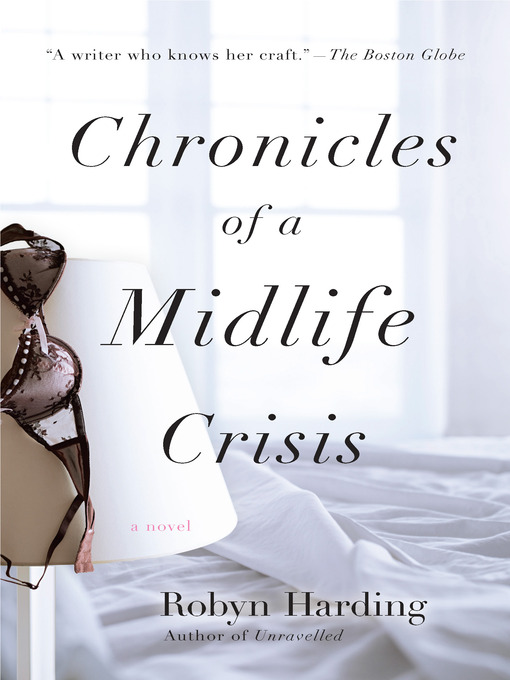 This town was located 1,500 miles from the border of Canada and the United States. It was there that the forest ended and the tundra began. There was permafrost.
This town was located 1,500 miles from the border of Canada and the United States. It was there that the forest ended and the tundra began. There was permafrost.
"Paralysis of the joints begins early in the north," said Norman, "and quickly spreads to the brain and vital organs. So after I graduated from high school, I left.
I liked his sense of humor. I thought we got along pretty well with each other.
At the door I said goodbye to Norman. He was almost out, but suddenly he came back.
— By the way, I had a dream last night. I ended up in a burning house with my mother. I tried to take the fire out of the house in a basket, but it turned out to be full of holes. I couldn't find Nancy anywhere and ran around the house in a panic. Then I began to open bottles of soda water, throw them to people on the burning roof and shout: “If we don’t put out the fire from above, then everything will go to dust!”
— What do you say to that? Norman asked.
I thought about it.
“See you in a week,” I replied.
* * *
Norman was in high spirits; usually a person has such a feeling when he entrusts his soul to a professional for the first time. This state is characterized by the recognition of defeat along with the recognition of the impossibility of coming to terms with it. The last time he told me about something that he had never told anyone before. This brought him some relief from the growing tension. This time, he didn't look like he was in trouble at all. Now, in his opinion, the solution to his problems was in my hands.
At the same time, Norman was in a state of some inflation; it happens automatically when too much unconscious material enters consciousness. Man is bursting with new knowledge. Life seems great. Everything immediately becomes clear as day.
As a rule, such spiritual uplift and such inflation are temporary phenomena.
Right after my first visit to the analyst, I went out and got drunk. I felt so happy! I could not believe that my condition could change so dramatically. I used to humiliate myself and try not to stand out among other people. However, I couldn't explain it. Now I can’t remember what I talked about in the first session with the analyst, but I remember well that I began to feel much better. Then depression set in.
I used to humiliate myself and try not to stand out among other people. However, I couldn't explain it. Now I can’t remember what I talked about in the first session with the analyst, but I remember well that I began to feel much better. Then depression set in.
I called a few of my friends and we had fun together all night.
Descending from such heights is a little pleasure. Maybe that's why I don't like heights.
I really wanted to tell Norman to keep all our conversations a secret, but I didn't. He will know about it when it becomes necessary for him - if such a need arises, and without the slightest hint from me, and then he will not be able to do otherwise. He believed that visiting me would help him get closer to his wife, and I think it will. But deep down, he was proud that he had made his own decision.
Secrecy is a very important part of the analytical process. It helps to develop the whole inner psychodynamics. If you tell people other than your analyst what you're experiencing, you're missing out on something very valuable. In this case, you relieve tension, but the internal psychodynamics is inhibited.
In this case, you relieve tension, but the internal psychodynamics is inhibited.
In the first months of my analysis, I was like a sieve. I couldn't keep anything to myself. I lived in Zurich with a man who was also trained in Jungian analysis. Arnold and I shared literally everything: what we read, what we felt, as well as our fantasies, dreams, etc.; we replayed our analytic sessions down to the smallest detail, trying to guess why our analysts, in the short time allotted to us, spoke one way or another, or simply smiled and remained silent. It was an amazing time, and our closeness continues to this day. After a while, my analyst said, “Wow, you dreamed of broken bottles and an overflowing sink; sand slips through your fingers and water seeps through cracks in the wall. What does this dream say?
I didn't know it then, but I soon understood.
Arnold and I are trapped in our shared secret. A mystical belonging has been established between us, that is, a relationship of mutual identification with victories and failures. Such belonging always strengthens friendship, and it should always be. I probably wouldn’t have been able to survive the first months in Zurich if I didn’t have this relationship, but our very closeness became an obstacle that we had to somehow overcome: each of us needed a confrontation with our “I” without any outsider interventions to work only with our own material, with the most serious internal conflicts and the sharpest contradictions that we have experienced.
Such belonging always strengthens friendship, and it should always be. I probably wouldn’t have been able to survive the first months in Zurich if I didn’t have this relationship, but our very closeness became an obstacle that we had to somehow overcome: each of us needed a confrontation with our “I” without any outsider interventions to work only with our own material, with the most serious internal conflicts and the sharpest contradictions that we have experienced.
At the very beginning, none of us could serve as a psychological container for such a task. We acted out our emotions; we clogged and polluted the psychological atmosphere around us.
In alchemy there is a certain analogy to such a psychological container: vas Hermetis, a sealed vessel. It should be kept closed so that when heated, its contents undergo a transformation. At the slightest heat leakage, nothing happens. From a psychological point of view, such a heat leak is equivalent to a decrease in psychological stress during a conflict.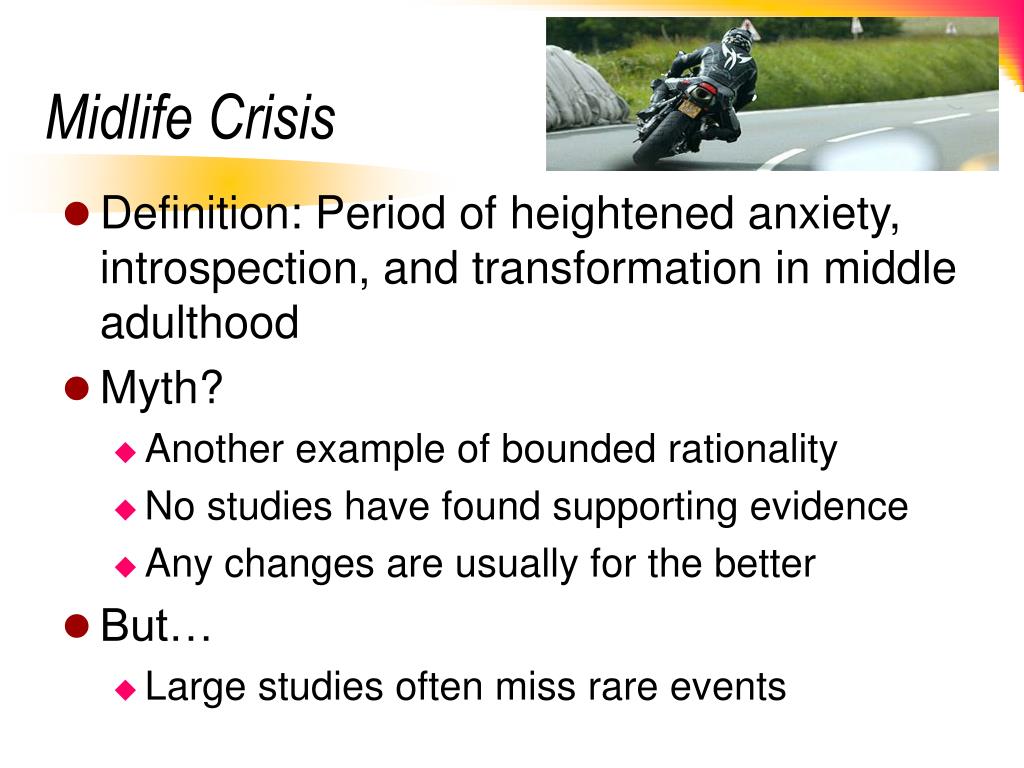 In this case, gold, that is, the philosopher's stone, is not formed. You have the same old lead in your hands that you had at first.
In this case, gold, that is, the philosopher's stone, is not formed. You have the same old lead in your hands that you had at first.
Then I had to create an inner temenos, a sacred space that belongs only to me. It excites the psyche and increases tension. If you have felt how important such a psychological container becomes, you instinctively know what can and cannot be released from it. If you make a mistake, it becomes almost obvious how the walls of your temenos crack.
Of course, I had my own analyst. This relationship was another type of temenos, a place where the gods could play freely in an atmosphere of mutual trust and respect. The analyst observed and tracked everything that happened to me; I relied on him, aware of the content of my dreams, considering him a mirror, essential to stay on track, but he was not intrusive at all. I often compared him to an obstetrician helping to deliver a baby.
He determined the course of the process, but sometimes, when my own temenos became more solid, I no longer had to tell him absolutely everything.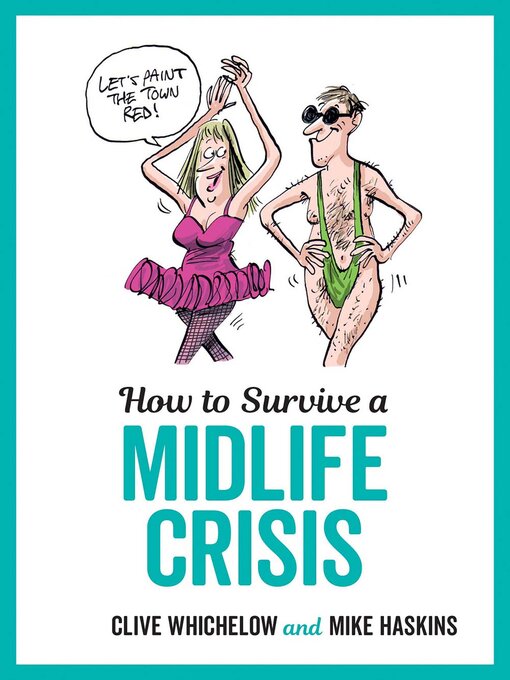
Essentially, Norman couldn't keep anything to himself without telling his wife about it. If he succeeded, he felt guilty. True, he had a selective numbness, but on the whole he told her everything that came to him naked. Their mutual mystical involvement was evidence of his attachment to her and his need for approval. He wanted to be completely transparent to his wife - a book open to her. His connections with other women were an important exception. He hid them even from himself.
At the same time, his wife had a secret that she really wanted to hide from Norman. She had a lover. If Norman found out about this, there would be a complete collapse. Then their house of cards—the outward image of their family they created—would inevitably collapse. (She had no idea that Norman already knew about the lover. He could not tell her about it, as he was moderate, that he would receive a reprimand for "rummaging through her things.")
For several years, Norman's wife stoically concealed her betrayal: not because she didn't care, but rather because she had no other choice. She was as strongly connected with Norman as Norman himself. The wife would have lost too much if he could not stand her infidelity. And she was completely sure that he would not stand it when he found out about her betrayal. Therefore, she could not allow him to find out everything. She didn't know he couldn't take it anymore.
She was as strongly connected with Norman as Norman himself. The wife would have lost too much if he could not stand her infidelity. And she was completely sure that he would not stand it when he found out about her betrayal. Therefore, she could not allow him to find out everything. She didn't know he couldn't take it anymore.
Norman's wife combined a caring mother, who really guarded the peace of her son-husband, and a witch, who looked at him through her fingers and did everything she wanted, but at the same time tried to keep everything she had. Like Norman, she wanted to have her own piece of the pie and enjoy it too. How did I know what was going on inside Norman's wife? Because I worked with her sisters: the wives and girlfriends of men who looked like Norman. Particulars are always different, but the psychological pattern is the same. Such women hide in order to protect their men from the pain that comes with their personal growth. They live a painful, schizophrenic life, walking on the edge of a precipice until they part with their identity with their mother.
This is my point of view, although I may be wrong.
According to Norman, his wife did him the honor of allowing him to make love to her. He was anxious, waiting for her desire to come. Norman was entirely at the mercy of her whims and whims. He just wanted to be loved, and for him this desire was tantamount to attraction, more precisely, attraction to him by his wife. When she showed indifference to him, he did not feel that he was loved. Other women could want him and did not hide it, but they were different from his wife, and therefore their desire did not violate his inner balance. He still didn't feel loved.
He knew nothing about his wife's fears, her needs, or her complexes. He didn't understand why she was crying at night. Perhaps when he was smoking weed in the basement, she was tormented by remorse in the attic. Nothing of the kind occurred to Norman. He, too, was obsessed with his ideas of what was happening to her.
Of course, he sympathized with her - it is terribly painful to live with her husband and not have a sexual attraction to him, but he connected her sexual indifference to him with his shortcomings. Such was the influence of his mother complex, of which the image of the cat in the epigraph to this chapter serves as an accurate metaphor; this complex has set a trap in such a way as to prevent the person from "changing direction", that is, reorienting his conscious set.
Such was the influence of his mother complex, of which the image of the cat in the epigraph to this chapter serves as an accurate metaphor; this complex has set a trap in such a way as to prevent the person from "changing direction", that is, reorienting his conscious set.
I am reminded of the remark of my first analyst: "Our sympathy castrates us."
Norman was not very comfortable discussing his wife and their relationship with me. He found this betrayal, as if he had misused her trust. They were always together. Their marriage was its core, its temenos. How could he cope with the conflict if he became increasingly aware that he would have an increasing need to increase the psychological distance from his spouse?
Norman thought he knew what he wanted: a loving wife. But in fact, he needed a mother, a safe space in which he would feel at home. Nancy got in big trouble. On the one hand, Norman was her lover son who was attached to her: this situation felt like incest and put a ban on her sexual attraction to her husband. On the other hand, she really enjoyed being by his side at his “coming home” . Perhaps that was why she was tormented by remorse in the attic - if, of course, that was the case in reality.
On the other hand, she really enjoyed being by his side at his “coming home” . Perhaps that was why she was tormented by remorse in the attic - if, of course, that was the case in reality.
And thirdly, apparently, she didn't know about it herself, she enjoyed her power.
I did not know Norman's wife. I only knew about her from his words. I understood that much of what he told exists only in his head and has nothing to do with it. Norman had no idea at all that such a difference existed. And I firmly knew that I did not want to meet her, because she was interested in me only in the perception of Norman, and not in reality. Meeting her would just add to the confusion.
This is the difference between individual analysis and working with couples.
At this stage, I had a certain opinion about the situation in which Norman found himself, and there were some thoughts about what he should do next. But by sharing my thoughts with him, I would have done him a disservice. Then I would influence the flow of his internal process, and even if, by a lucky chance, I hit the mark, he was still not ready to hear my words.
Then I would influence the flow of his internal process, and even if, by a lucky chance, I hit the mark, he was still not ready to hear my words.
In any case, Norman's dream, which he told me as an afterthought, was more reliable than my opinion, and even more so the opinion of his wife. It told us what was really happening to Norman, not what was happening to him or should have happened, in my opinion.
The initial dream - the first dream that a person tells in an analytic session - is of particular importance, as it often allows one to understand both the hidden reasons that bring a person to analysis and the essence of psychological problems that need to be worked out. These problems can only be revealed to an unprejudiced eye; probably, more than one year will pass before the symbolic content of the dream becomes clear at the time when the person dreamed it. But the dream always has a numinous meaning, a special charm and sensuous content that cannot be denied. It is preserved for a person as a starting point, so that he always has the opportunity to go back.
I never had a dream until I began analysis. At least I never memorized them. But it is not so. When I was six years old, I dozed off in the toilet and dreamed that God appeared and assured me that everything would be fine. I also remember some other childhood dreams in which elves and fairies lived.
I received my first diploma in mathematics and physics. The dreams never came. Then I got into journalism. As a reporter, I had to handle a lot of political speeches. There were many stories about dreams in them, but these dreams were somewhat different. Even after returning to university to study literature and philosophy, I had no idea how important dreams could be.
According to research on sleep psychology, each person dreams several times during the night - this is indicated by the so-called REM phenomenon (rapid eye movements), the rapid movement of the pupils during sleep. People who cannot sleep deep enough to dream develop anxiety and irritation over time. These experiments, although they say nothing about the content of dreams, testify to their extremely important biological function.
These experiments, although they say nothing about the content of dreams, testify to their extremely important biological function.
Jung looked much deeper. He was convinced that the purpose of dreams is to track and control the flow of psychic energy. I, an adult, should have had dreams, but due to insufficient attention to them, they were all forgotten. Where did my interest in dreams come from? They dreamed at night and had nothing to do with me.
That's exactly what I thought, until one day I woke up, but the dream was not forgotten and remained in my memory all the time.
My first dream that prompted me to come for analysis was about a bouncing ball. I was on the street, in the center of an empty family, surrounded by houses with many dead ends and deaf cellars. I rolled the ball, which bounced from the houses, standing on one side of the street, to the other. He eluded me all the time, I could not manage to tame him. I woke up with a cold foot, full of horror, and could not help sobbing.
Now this dream seems quite innocent to me. But then he split my whole inner world into pieces
So I got acquainted with the reality of the psyche, it was a kind of initiation, baptism by fire. I did not know that something could happen to me that I could not realize. I was convinced that everything can be achieved by the efforts of the will. "If there is a will, then there is a way out." I had this dream at a tense moment of powerful internal conflict, which I was disconsolately trying to resolve. I was still convinced that I would solve it myself. My reaction to the dream destroyed that illusion.
The psyche is the totality of all conscious and unconscious processes taking place in it. Psychic phenomena are just as real as the rest of the material world. The unconscious is largely independent of consciousness; it not only reacts to conscious processes and contains material repressed into consciousness, but it is also a source of content that we have never been aware of: it can create.
Jung describes dreams as periods of some forced mental activity, conscious enough to be reproduced in the waking state. Dreams are self-portraits, symbolic representations of what is happening to a person from the point of view of the unconscious.
Self-knowledge is the result of looking in two directions at the same time. To know ourselves, we need communication with other people and the reflection of this communication in the unconscious. Dreams give us the opportunity to receive such a reflection.
Dreams are independent, spontaneous manifestations of the unconscious. Their message rarely matches their conscious beliefs. Not only do they not obey our will at all, but they are often completely opposite to our conscious attitudes and intentions. Often they are more important than everything that happens in a day, but at the same time they provide valuable commentary on the events that have happened in our lives.
Freud believed that dreams, in essence, perform two functions: the fulfillment of unfulfilled desires and the preservation of personality.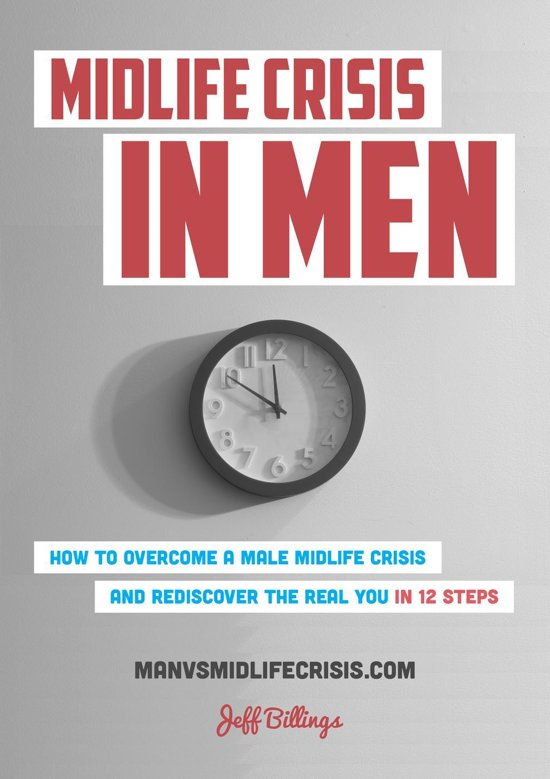 Jung admitted that in some cases this is true, but he focused on the huge role of dreams in the self-regulation of the psyche. He argued that their main function is to compensate for conscious attitudes - that is, to concentrate on different points of view, allowing the formation of an internal agreement of the Ego-personality.
Jung admitted that in some cases this is true, but he focused on the huge role of dreams in the self-regulation of the psyche. He argued that their main function is to compensate for conscious attitudes - that is, to concentrate on different points of view, allowing the formation of an internal agreement of the Ego-personality.
Compensation is a process whose purpose is to maintain mental balance. If the conscious attitude is too one-sided, the dream tends to balance it; if the conscious attitude turns out to be more or less consistent with reality, the dream indicates that the person is experiencing satisfaction, indicating some deviations from this state; if the conscious attitude is perfectly adequate, the dream may correspond to it and even reinforce it.
Dreams have a compensatory function if they reveal certain aspects of a human personality whose consciousness does not correspond to the normal state; they reveal unconscious motivations in interpersonal relationships, as well as a new view of a person on a conflict situation.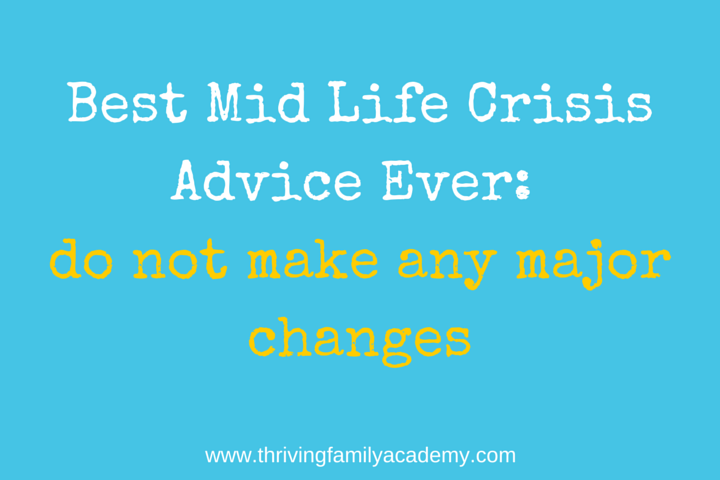
In addition, Jung singled out the goal-setting function of dreams, which means that the solution to a conscious conflict is often hidden in the symbolic content of dreams. It is this point of view that corresponds to his view of the goal-setting function of neurosis: the goal of dreams is to provide consciousness with the information necessary to restore the psyche to its healthy state.
“If this is true,” I said to my analyst, “if dreams are really that important, then it is very difficult to understand them.
He only smiled in response.
I found an equally enigmatic answer in Jung: "Dreaming is a natural phenomenon, and ... nature has no inclination to bestow its fruits on people in the form of a reward or according to their expectations."
It takes a lot of work to understand dreams. We are not accustomed to their symbolic language. The combination of ideas in dreams is highly unusual and irrational; the images are related to each other in a completely different way than in our usual linear way of thinking. At first glance, they make very little sense. And at a second glance, too. It takes a long time to get used to the language of dreams.
At first glance, they make very little sense. And at a second glance, too. It takes a long time to get used to the language of dreams.
In one of my dreams after starting analysis in Zurich, a spider on skis appeared, gliding over a razor blade. Well, what do you say to that? They also say that the unconscious has no sense of humor.
According to Jung, the dream is an inner drama. The dreamer is the stage, the director, the author, the actors and the critics combined. The dream is the dreamer. Each element of the dream refers to a part of the dreamer's personality; especially it should be noted that human characters in dreams are a figurative expression of complexes.
Dreams bring us face to face with our complexes and show us how they operate and shape our attitudes, which, in turn, largely determine our behavior. The work that needs to be done to understand a dream or a series of dreams is one of the best ways to defuse the complex, because by focusing our attention on the content of dreams, we form a conscious attitude towards them.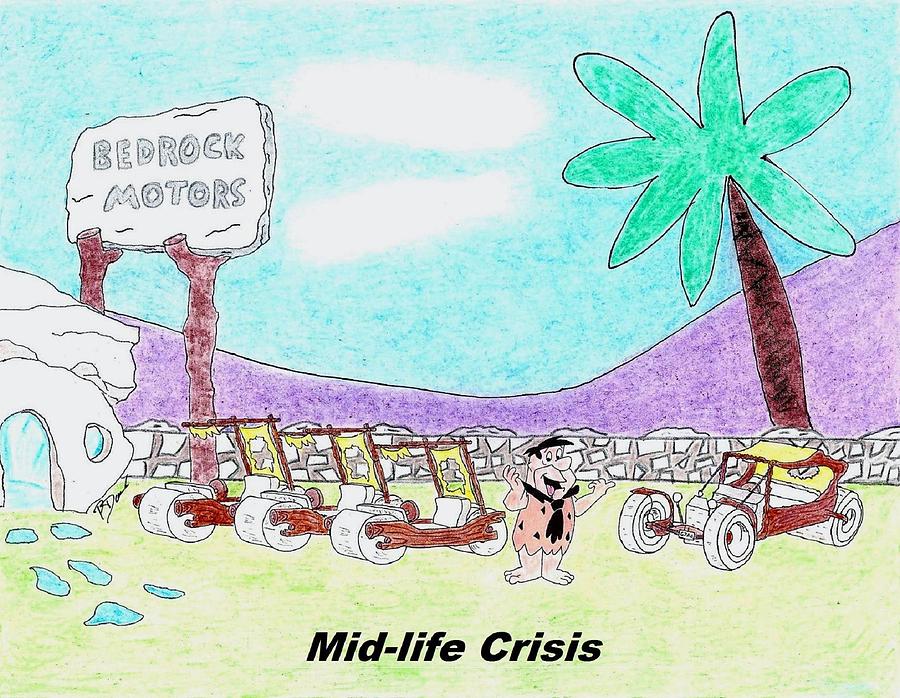
It is especially difficult to understand our own dreams, because our complexes - our blank spots - always find an opportunity for external manifestation to some extent. Even Jung, who worked on thousands of dreams for more than fifty years, experienced such difficulties. There is a basic rule in working with dreams: if you think you have understood the dream thoroughly, then you have missed the point.
Freud was the first to assert that one cannot interpret dreams without the cooperation of the dreamer. Interpretation requires a detailed knowledge of the person's external situation prior to his dream, as well as his conscious set. Thus, individual associations to dream images can only be obtained from the dreamer himself. If the essence of the dream is to compensate for conscious attitudes, then these attitudes must be known, otherwise the content of the dream will forever remain a mystery.
Archetypal dreams are an exception. They are distinguished by the presence of symbolic images and motifs characteristic of world myths and religions.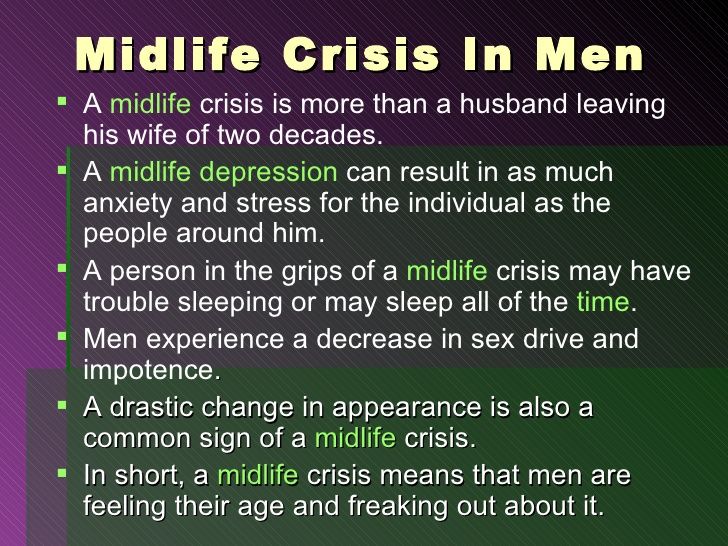 They usually appear during an acute emotional crisis, when a person finds himself in a situation that reflects a more or less common problem for humanity. Such dreams often appear during transitional periods, when a person is faced with the need to change his conscious attitude to life.
They usually appear during an acute emotional crisis, when a person finds himself in a situation that reflects a more or less common problem for humanity. Such dreams often appear during transitional periods, when a person is faced with the need to change his conscious attitude to life.
Norman's first dream was archetypal. Mine too.
There are no permanent meanings of symbols and motifs in dreams, no standard reliable interpretations that would not depend on the psychology and life situation of the dreamer. And therefore, all the standard recommendations and stereotypical "meanings" of dreams given in various popular dream books have absolutely no value.
I am looking at a thick edition entitled "Ten Thousand Dreams with their Interpretations, or the Contents of a Dream: Scientific and Practical Material." It was published about a hundred years ago, but is still popular. Here are some excerpts from it:
If you see your house on fire in a dream, it means that you have a loving spouse, obedient children and diligent servants.
Psychology bookap
If you see bananas in a dream, it means that you have an unattractive and unloved spouse (or spouse).
Usually, after you see salt in a dream, everything falls out of your hands, and quarrels, squabbles and dissatisfaction with people close to you arise in the family.
Seeing thick, ugly lips in a dream means a quarrel, an unsuccessful decision and a deterioration in marital relations.
Cutting meat in a dream is a bad omen, but if changes have already happened, there is hope for a better future.
Such books are very interesting to read, but reading them can do nothing to help the study of dreams. Any claims that we can control the content of dreams can only be called stupid. There are no convincing arguments that this is possible, and it is not necessary, even if it were possible, because then we would lose valuable information that would become inaccessible to us.
Many dreams have the structure of a classical drama. They have an exposition (time, place and characters) that shows the dreamer's original situation. The second stage is characterized by the development of the plot (there is an action). In the third stage, a climax occurs or apotheosis is reached (a decisive event occurs). The final stage is lysis, the result of an action or resolution of a problem in the dream. It is often very helpful to look at lysis in order to know the direction of the dreamer's energy flow. In the absence of lysis, there is no obvious solution.
They have an exposition (time, place and characters) that shows the dreamer's original situation. The second stage is characterized by the development of the plot (there is an action). In the third stage, a climax occurs or apotheosis is reached (a decisive event occurs). The final stage is lysis, the result of an action or resolution of a problem in the dream. It is often very helpful to look at lysis in order to know the direction of the dreamer's energy flow. In the absence of lysis, there is no obvious solution.
The best way to work with dreams is to discuss them with another person, especially if he can look at dreams objectively and most likely will not project his own psychology onto the dream. Even analytical knowledge of one's own complexes cannot fully guarantee the absence of such projections, but if a person does not have the necessary preparation, such a discussion of sleep turns into an empty verbiage.
The first step in working with a dream is to get personal associations to all the images that exist in it.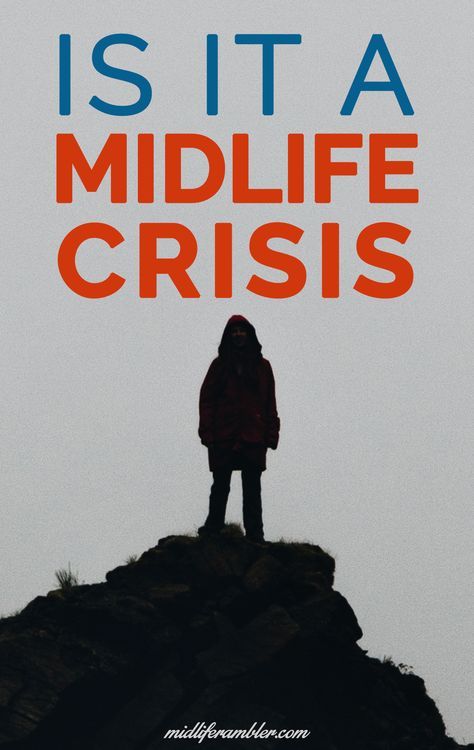 For example, if there is a tree, a carpet, a snake or an apple, it is important to determine what they mean in the dreamer's sensation. This activity is reminiscent of the process of surrounding the image from all sides, when you are always close to it.
For example, if there is a tree, a carpet, a snake or an apple, it is important to determine what they mean in the dreamer's sensation. This activity is reminiscent of the process of surrounding the image from all sides, when you are always close to it.
“What does a snake mean to you?..”
“What else?..”
“What else?”
This approach differs from Freud's traditional method of free association, which generally gets to the complex but leaves out the full meaning of the image.
All personal associations of dream images usually converge to a peak, where there are often corresponding amplifications - the meanings of carpets, snakes and apples for other people, in other times and in other cultures.
They are called archetypal associations. They cause an expansion of our consciousness, bringing into it material that it did not possess, but which was present in the unconscious as part of the common heritage of our psyche. The same images or motifs constitute the content of myths, religions and fairy tales. Therefore, an integral part of the training of an analyst is the knowledge of myths, religions and fairy tales necessary for work.
Therefore, an integral part of the training of an analyst is the knowledge of myths, religions and fairy tales necessary for work.
The collection of individual and archetypal associations to a dream, that is, the exploration of its context, is a relatively simple, almost mechanical procedure. It is necessary, but only as a preliminary step towards genuine work, a true interpretation of the dream and the information it contains about the dreamer's life and his conscious attitudes. This task is so difficult, and the corresponding experience is so intimate, that the realization of the meaning of any dream is certain only for the two people who work on it.
This is why the person undergoing analysis should avoid discussing with his spouse or friend the meaning of the dream he is working on with the analyst. To attempt to describe the inexpressible to a third person who is not privy to the most precise dream associations is to risk endangering one's point of view, which has been formed as a result of long and painstaking work.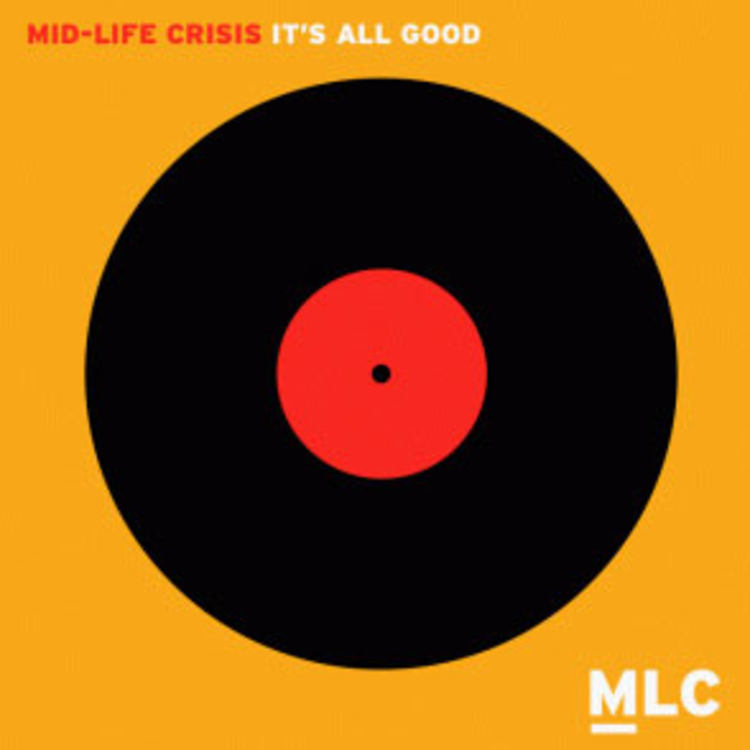 In addition, this point of view can affect the established temenos with the analyst.
In addition, this point of view can affect the established temenos with the analyst.
Dreams can be interpreted both on a subjective and an objective level. In the first case, the dream is viewed solely through the prism of the individual psychology of the dreamer. If an image of a person known to me appears in my dream, I should focus not on it, but on the symbolic embodiment of the content of my unconscious, which is projected onto it. But in the area in which I had a real connection with this person, a more accurate and objective interpretation can be found - then the dream wants to say something about the relationship that exists between us.
In each case, the image of another person is created in my psychology. But a more reliable subjective or objective approach is still determined from the context of the dream and on the basis of individual associations.
Undoubtedly, dreams have several meanings. Ten analysts can work on a dream and give ten different interpretations, depending on their typology and their complexes. Therefore, the interpretation cannot be reliable without a dialogue with the dreamer, and the last word should remain with him. The interpretation that has found a "response" in the dreamer becomes "correct" - but only for a while, because subsequent events and dreams often allow previous dreams to be seen in a new light ...
Therefore, the interpretation cannot be reliable without a dialogue with the dreamer, and the last word should remain with him. The interpretation that has found a "response" in the dreamer becomes "correct" - but only for a while, because subsequent events and dreams often allow previous dreams to be seen in a new light ...
But then what to do with my dream in which I dreamed of a bouncing ball, or with the dream that Norman told me on the doorstep?
As noted earlier, both dreams are primarily typical of a midlife crisis, when there is a need to change conscious attitudes. In this case, individual associations are not key, because the meaning of dreams is more or less transparent. Even with minimal knowledge of archetypal motives, one can reveal the psychological state of the dreamer during the dream; at the same time, various circumstances of his life may or may not be known.
The main problem that appeared in my dream was the difficulty in maintaining the balance of opposites. A ball, like any other object, has a minimum internal cavity volume for a given surface area. No more can be placed in it unless its surface is torn or deformed. Thus, the ball symbolizes the self-sufficiency of the psyche and the self-regulation of mental processes. The ball keeps rolling away from me. The compensatory message of the dream is that I am not in control of the process. Now, if I could form a core personality in myself, if I were a more integrated personality ...
A ball, like any other object, has a minimum internal cavity volume for a given surface area. No more can be placed in it unless its surface is torn or deformed. Thus, the ball symbolizes the self-sufficiency of the psyche and the self-regulation of mental processes. The ball keeps rolling away from me. The compensatory message of the dream is that I am not in control of the process. Now, if I could form a core personality in myself, if I were a more integrated personality ...
In Norman's dream, he sees himself in a burning house. The house is his personal space. The raging flame is an affect constellated by conflict. The conflict threatens to consume him whole if Norman doesn't deal with it. In the dream, his mother is present, but his wife is not. His mother had died a few years ago, but her image, the image that meant "mother" to him, remained very much alive and vivid in his psyche. A basket is a container, a vessel. Norman's container won't help him deal with the problem; there is a hole in him, meaning that it is difficult for him to restrain himself and not tell others what is going on in his soul. Vessels have an archetypal connection with the feminine; this part of Norman's personality, that is, his anima, is in close connection with the image of his mother.
Vessels have an archetypal connection with the feminine; this part of Norman's personality, that is, his anima, is in close connection with the image of his mother.
Soda bottles symbolize youthful attitude, the people on the roof represent his expectation that others will do his job for him. The burning roof means that the conflict is already happening at the level of his head.
The fact that Norman told me the dream when he left me, and not immediately upon arrival, indicates that he was not aware of the direct relation of the dream to his actual life situation. Norman was in danger and didn't understand it. Fortunately, this "understood" his unconscious; in the dream he was in a panic.
This was the compensatory purpose of this dream - to bring the dreamer to an awareness of the terrible circumstances in which he found himself.
Despite Norman's vain efforts to put out the flames, at least his desire to do so and a sense of impending disaster were noticeable. Extinguishing the flame can serve as a metaphor for the assimilation of complexes, in contrast to the behavior due to their impact. For the assimilation of complexes to take place, the conflict must gradually turn from a purely intellectual problem into a sensory experience. Perhaps in this case, Norman will gradually find an opportunity to somehow cope with him.
Extinguishing the flame can serve as a metaphor for the assimilation of complexes, in contrast to the behavior due to their impact. For the assimilation of complexes to take place, the conflict must gradually turn from a purely intellectual problem into a sensory experience. Perhaps in this case, Norman will gradually find an opportunity to somehow cope with him.
There are two reasons that lead to the conclusion that at this stage Norman's psychological situation is problematic:
1) it is characterized by a neurotic state of his psyche with a predominance of suffering and a lack of real action;
2) Norman does not have a psychological container that would not depend on his wife and his family.
Analysis includes a more or less thorough examination of personality and its change. To some extent, it means the rejection of those collective attitudes and values that become useless for a given person in given conditions. There are collective attitudes and collective solutions that fit many situations, but usually people come to analysis precisely because they do not find a satisfactory standard solution to the problem they have to solve.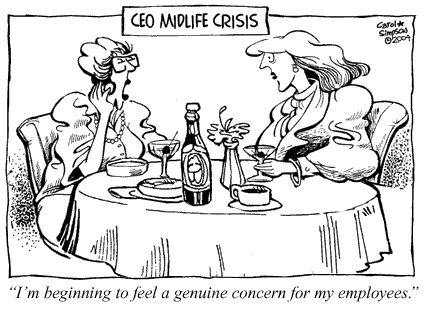
At that time, Norman put on a hood, which he tried to lift from time to time. He was looking for an answer that would be right for him. Neither I nor he had any idea what that answer should be.
I didn't tell Norman this because our session was over and I had to keep the time.
Is there a midlife crisis?
Sadhguru answers a question about a midlife crisis and views life as a process of constant change.
ArticleNov 23, 2021
Question: Sadhguru, lately I have been feeling a deep sense of emptiness in my life. Am I having a midlife crisis?
Sadhguru: When was there no crisis in your life? Childhood was a crisis, youth was a crisis, finding oneself in a career is a crisis, middle age is a crisis, old age will be a crisis, death will also be a crisis. At least in middle age, you should be in balance, right? The difficulties of youth are over, the problems of old age have not yet come.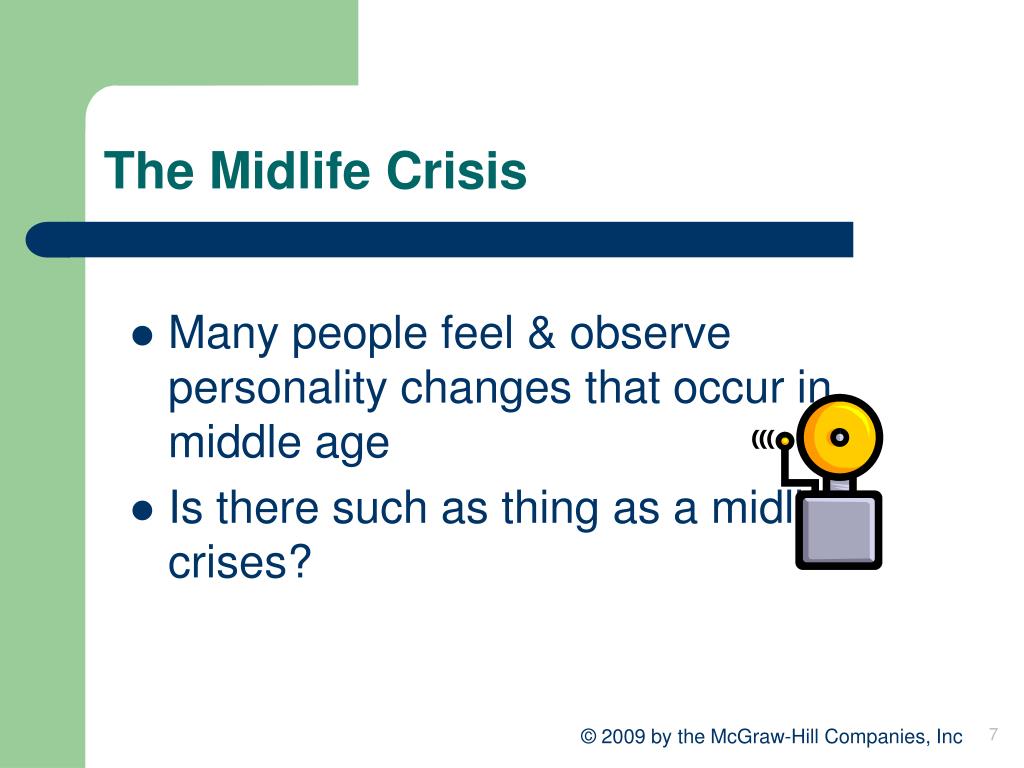 Middle age should be the best period of your life, but you call it a crisis. It's not you having a midlife crisis, but you yourself have become a crisis.
Middle age should be the best period of your life, but you call it a crisis. It's not you having a midlife crisis, but you yourself have become a crisis.
40 years is not a crisis, even 80 is not a crisis, death is not a crisis either. This is a natural process of life.
To some extent, the energy of youth is gone, and this is presented as a midlife crisis. In your youth, you probably lived a hectic life. There is no more energy, you can no longer have fun until 4 in the morning, so you think there is a crisis.
What you call a crisis is nothing more than a change. Because you don't know how to deal with this change, you call it a crisis. If you don't want change, you need to reach either enlightenment or the grave. Otherwise, as long as you are part of physical existence, there is nothing that is not subject to constant change. One moment you are inhaling, the next you are exhaling – that is a change. If you resist change, you are resisting the fundamental process of life, and you are bound to incur all sorts of suffering.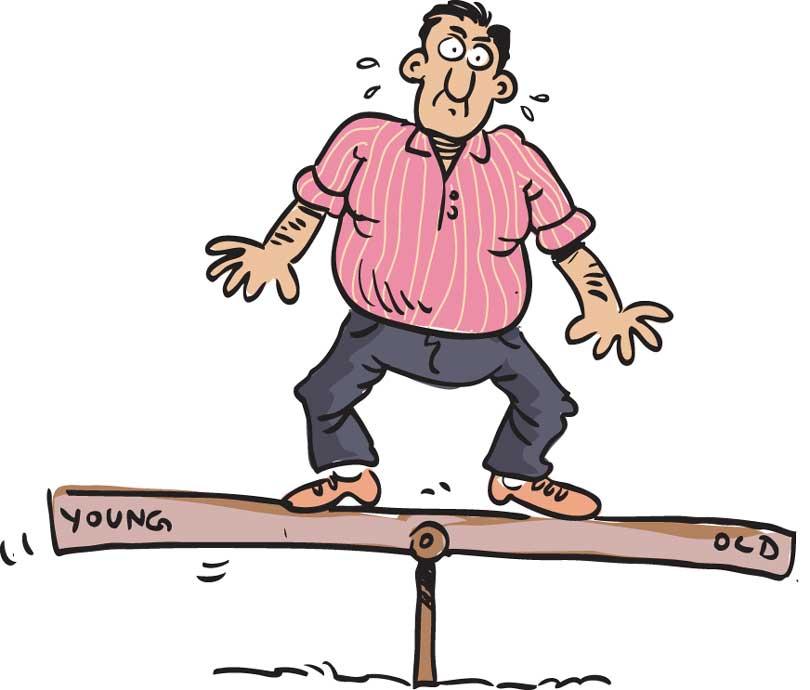
Life is situations. We know how to deal with some situations, but not with others. If you live knowing in advance how to handle every situation that arises, you start to die of boredom. If you don't know how to deal with a new situation, you start to worry and feel like it's a crisis. Therefore, you have only two options - boredom or crisis!
Don't make life a double curse when you lose both options. If you're facing a situation that you don't know how to handle, then it's time to organize your body, mind, emotions and energy in the best possible way to figure out how to overcome it. But you don't want to organize them, because they have become like a concrete block that doesn't want to change. This concrete block wants to go through all life stages without changing its shape. But that's not how it works.
When you're 40 and still want to live like you're 18, 40 will feel like a crisis. 40 years is not a crisis, even 80 years is not a crisis, and death is not a crisis. This is a natural process of life.
This is a natural process of life.
Because you have identified yourself with one stage of life, another stage seems like a crisis.
There is no crisis. There are only different situations in your life. Life will change anyway. The only question is, does it change the way you want it, or by chance? Here is the only problem.
It's better than stagnation anyway, because human life can't stand stagnation. "Midlife crisis" means nothing more than: "My life has stagnated. Everything is the same: the same house, washing dishes, the same spouse, the same feelings. This "everything is the same" is just your inference. In fact, changes occur every day, every moment of life. They happen in your body, in your mind, in everything around you - you are simply inattentive to life. You are too caught up in your mind, which is running in circles. As he goes through the same stupid cycle over and over again, it feels like stagnation and crisis.
If you watch every leaf around you, if you watch everything that is happening around you, you will see that life is a process of constant change: nothing is stagnant. Both inside and outside, everything is in a constant dynamic process of change. If you are involved in life, it will never seem like a crisis to you. You are involved only in your thoughts and emotions - this is a crisis.
Both inside and outside, everything is in a constant dynamic process of change. If you are involved in life, it will never seem like a crisis to you. You are involved only in your thoughts and emotions - this is a crisis.
It's good that you have a sense of crisis, otherwise you will never start looking for a way out of this fiction. You will forever be immersed in lies.
Crisis is better than tragedy. If you entertain yourself with your thoughts and emotions for the rest of your life, never realizing what you are doing, it will be a tragedy. Crisis is better than this tragedy - it can wake you up, whereas tragedy can only finish you off.
Right now, you need to understand that the crisis is 100% your doing - your mind and your emotions. Not nature, not being, not creation, but only yours. If you do not understand this, you will create crisis after crisis. If you realize that it is your own creation, then there is no need to stop it - it will disappear by itself.
Editor's Note: Isha Kriya is a free guided meditation created by Sadhguru to help bring clarity and well-being to human life. This simple but powerful 12-minute practice makes a piece of spirituality accessible to everyone.
Try Isha kriya now!
https://youtu.be/1VKDQraF82Y
Related Tags
Stress
Related Content
article
"Internal Engineering". Technology for creating inner well-being.
What is Inner Engineering and how can you use it for your well-being? In an interview with the Indian newspaper Golf News, Sadhguru answers these questions.
Jan 20, 2022
article
How to get rid of stress?
Whatever people do, each of them finds that his work causes a lot of stress. Whether you are a king, a peasant, or even an unemployed person, the complaint is the same.


